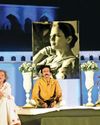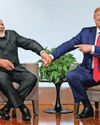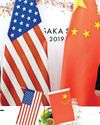IRAQI FORCES RETAKE MOSUL, BUT THE CITY IS COMPLETELY DEVASTATED, PUTTUNG A QUESTION MARK OVER ITS FUTURE.

Are there civilians trapped in the ruins?”
I asked a soldier belonging to a Shiite militia group, which was part of the offensive to liberate Mosul. The battle for Mosul, which started last October, is drawing to a close, with Iraqi Prime Minister Haider Al-Abadi declaring victory on July 9. Sporadic clashes, however, still continue, especially in the old city. The regular Iraqi army, the Golden Division special forces and the federal police have been leading the campaign against Islamic State.
The soldier laughed, and pointed to the battle tanks in the street, which were decorated with flags to mark Iraqi victory. “They are all under the rubble,” he replied, reminding me of the dirty part of the war. By the end, the war was about prisoners tied to the ground waiting to be questioned, and dead bodies lined up in rows inside buildings, as after a mass execution.
Another face of the war: soldiers carrying on their backs women and children, who came like ghosts from the ruins of the old city. They were wounded, hungry, barefoot and in tears. In a word, desperate.
Two days before the end of the war, General Fadhil Barwari, the commanding officer of the special forces, was looking at an old city map at his base in west Mosul. He was barely 200 metres from victory.
“What about civilians?” I asked him.
“We are waiting only to rescue the kids,” he said. “All others will die. We have pictures of women fighting. Those who stayed back till now, have done so to fight. We will save the children because they are our children, too. They are the children of Iraq. We will not have pity for anyone else.”
Diese Geschichte stammt aus der July 23, 2017-Ausgabe von THE WEEK.
Starten Sie Ihre 7-tägige kostenlose Testversion von Magzter GOLD, um auf Tausende kuratierte Premium-Storys sowie über 8.000 Zeitschriften und Zeitungen zuzugreifen.
Bereits Abonnent ? Anmelden
Diese Geschichte stammt aus der July 23, 2017-Ausgabe von THE WEEK.
Starten Sie Ihre 7-tägige kostenlose Testversion von Magzter GOLD, um auf Tausende kuratierte Premium-Storys sowie über 8.000 Zeitschriften und Zeitungen zuzugreifen.
Bereits Abonnent? Anmelden

The female act
The 19th edition of the Qadir Ali Baig Theatre Festival was of the women and by the women

A SHOT OF ARCHER
An excerpt from the prologue of An Eye for an Eye

MASTER OF MAKE-BELIEVE
50 years. after his first book, Jeffrey*Archer refuses to put down his'felt-tip Pilot pen

Smart and sassy Passi
Pop culture works according to its own unpredictable, crazy logic. An unlikely, overnight celebrity has become the talk of India. Everyone, especially on social media, is discussing, dissing, hissing and mimicking just one person—Shalini Passi.

Energy transition and AI are reshaping shipping
PORTS AND ALLIED infrastructure development are at the heart of India's ambitions to become a maritime heavyweight.

MADE FOR EACH OTHER
Trump’s preferred transactional approach to foreign policy meshes well with Modi’s bent towards strategic autonomy

DOOM AND GLOOM
Democrats’ message came across as vague, preachy and hopelessly removed from reality. And voters believed Trump’s depiction of illegal immigrants as a source of their economic woes

WOES TO WOWS
The fundamental reason behind Trump’s success was his ability to convert average Americans’ feelings of grievance into votes for him

POWER HOUSE
Trump International Hotel was the only place outside the White House where Trump ever dined during his four years as president

DON 2.0
Trump returns to presidency stronger than before, but just as unpredictable